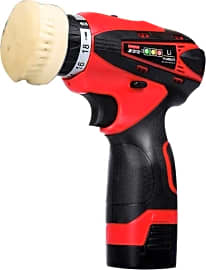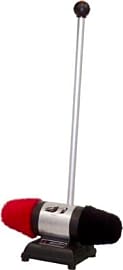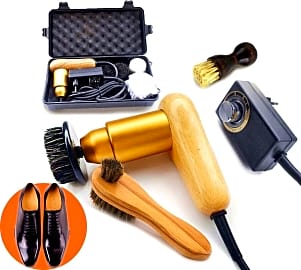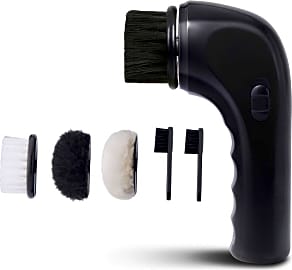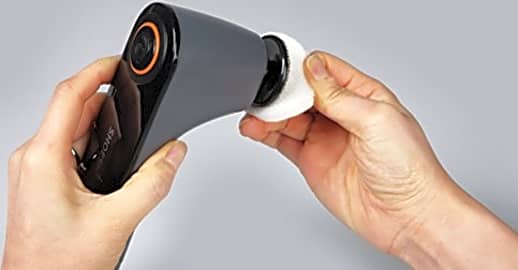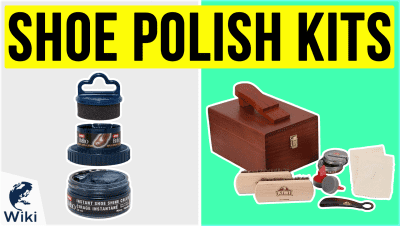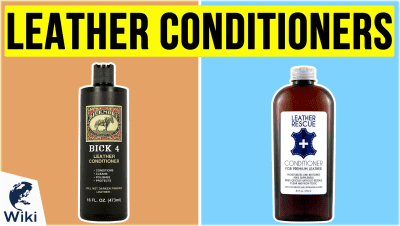The 6 Best Electric Shoe Polishers

This wiki has been updated 36 times since it was first published in October of 2016. Liberating countless Dickensian street urchins from toil since their invention, these electric shoe polishers keep every gentleman's or lady's shoes prim, proper, and, of course, clean. These fine products indicate how far we've come since the days of Oliver Twist, providing to customers, regardless of social strata, the kind of shine once reserved for only the upper crust. When users buy our independently chosen editorial recommendations, we may earn commissions to help fund the Wiki.
Editor's Notes
July 09, 2021:
We no longer recommend a pair of generic models that were constructed poorly compared to other options in the same price range. This time around, we've also added the BLWX Shoe Machine, which has considerable power and lets you adjust the torque gear to avoid scratches on sensitive shoes. If you'll be using it every single day, though, you may prefer the stand-up convenience of the Sunpentown UC-989 Electric.
January 24, 2020:
I wanted to ensure that any models introduced here both had powerful motors with lots of torque, and offered variety to the list in of function and style. There are a lot of duplicate designs on the market (in terms of both style and function), up to the point that they have identical motors and the same commonly reported issues. The last thing I wanted was a list full of duplicate models that disguise themselves under different brand labels. For instance, I recently took out a model with a weak and ineffective motor and I came across many duplicates that were struggling with the same issue.
By contrast, some of the models I've recently added use much more powerful motors. All things being equal (specifically with regards to the quality of your brushes), a more powerful motor means a higher torque, which means more cleaning power. High-end models that I've recently added like The Kings Shoes 10-Piece Kit and the EC Automatic Shiner offer both high torque and have good brushes. Specifically, The Kings Shoes Kit has 2 sets of brushes - one uses high quality swine bristles, while the other uses cotton flannel. Both options are upscale polishers and are quite a bit more expensive, though they are naturally your best options, along with the Sunpentown UC-989 Electric.
I've also included some more affordable, but effective options (for their price) if you're on a tighter budget, like the Amayia Rechargeable and Zhouxt Scrubber - the Shoeshineboy Auto is another one. It seems that people have unrealistic expectations for some of these lower-priced options and feel that they are too weak - quite frankly, for their price, they perform well, but if you're expecting some sort of high-pressure buffer that just peels of layers of dirt within seconds, then you should probably either invest in a more expensive model, or buy a good shoe polish kit instead.
A Brief History Of Shoe Polish
That's why keeping your footwear in mint condition has long been seen as a mark of high character.
A wise man once said, "You can tell a lot about a person by their shoes." Ok, so that person was Forrest Gump, but it's still true — your shoes reveal more about your personality than you might expect. That's why keeping your footwear in mint condition has long been seen as a mark of high character.
Leather has virtually always been one of the primary fabrics of choice for our shoes, but it has a serious drawback: it takes time to break it in. That's why, for most of antiquity, a substance called dubbin was used to help treat and condition leather. However, it did nothing for its overall appearance.
The first shoe polish was made of tallow, a form of animal fat, and was simply called blacking. Chicago was a major producer of blacking materials, largely due to the fact that the stockyards within the city offered a steady supply of beef fat.
Almost all of this early blacking was created strictly for use by the Army, though, as soldiers were expected to keep a spotless appearance when in their dress uniforms. The first commercially-produced blacking, now called polish, was made in Philadelphia in 1832.
Shoe polish wouldn't really catch on with the masses until 1906, however, when the company Kiwi created a product that was vastly superior to its predecessors. Their polish helped repair the leather, while also restoring its color and giving it a supple gleam.
Shoe shine hit its peak in the early 20th century, especially as the outbreak of WWI created a tremendous demand for polished boots, belts, and holsters. Keeping polished footwear was viewed as essential well past WWII, but like the practice of men wearing hats, it tapered off a bit after the 1960s.
Today, a well-polished shoe can still make you stand out in the crowd, but the art of shining shoes has largely been lost on current generations. If you're looking for an edge in your career or personal life, taking the time to touch up your footwear could be just what the doctor ordered.
After all, that Forrest Gump fella certainly went places in life, didn't he?
Tips For A Perfect Shine
If you've never polished a pair of shoes before, don't be intimidated. It's quite simple, and once you see the results, you'll likely become addicted to keeping your clogs spotless.
Lay a towel down before you start working, and don't wear anything you don't want to get shoe polish on, as the stuff can get everywhere. If possible, do it outside or on a tile floor, because good luck getting it out of your carpet.
Keep it with your electric polisher, and you'll be able to look your best year-round.
Use a damp rag or a cloth dipped in saddle soap to get all the dirt and debris off your shoes before you add the polish. You don't want to get them too wet, but you do want to knock off all the grime, because finely-polished mud does not look good on your dress shoes.
Once your shoes are dry, apply the polish liberally using a brush or pad. Massage the polish into the leather in little circles — oh, and be sure to match the polish to the shoes, unless you want some very interesting colors to emerge.
Let the polish soak in for a few minutes, and then it's time to buff it out. This is where an electric shoe polisher becomes worth its weight in gold — if you've never buffed your shoes out manually before, you should try it once just to see how much elbow grease you'll save using an electric buffer.
You may have been disappointed by how dull your shoes looked after you applied the polish. That's why buffing is important, as it removes all but a thin film, leaving your shoes sparkling. Keep buffing until your shoes look as spectacular as you'd hoped, paying special attention to the heels and toes.
It will likely be worth your while to make your own shoeshine kit. You can use a standard Dopp kit, and fill it with polish, soap, rags, and brushes. Keep it with your electric polisher, and you'll be able to look your best year-round.
Just don't let any of your friends know you have it, unless you're looking for a second job as a bootblack.
How To Keep Your Shoes Looking Fantastic Between Shines
Polishing your shoes regularly will go a long way towards extending their lifespan and keeping them looking beautiful, but it's important to take care of them in between shines, as well.
Also, take care of your footwear even when you're not wearing it.
The best thing you can do for your shoes is to not put them in a bad situation. Try to avoid walking in the rain and snow, and resist the urge to skip through mud puddles. If you must go out in a downpour, take time to waterproof your shoes with mink oil or leather conditioner first, as leather soaks up water like a sponge.
Also, take care of your footwear even when you're not wearing it. Buy shoe trees for every pair of shoes you own, and as soon as your feet come out, the trees should go in. This helps the shoes retain their shape while preventing cracking. Cedar shoe trees can also absorb moisture, which is fantastic if you have sweaty feet.
Likewise, use a shoe horn when putting them on — and no, your thumb doesn't count as a shoe horn. This prevents you from breaking down the back of the shoe, extending the shoe's life and helping it retain its fit. If you're one of those people who just jams their feet in without even loosening the laces, then please know I've already notified the fashion police, and they should be at your door any minute now.
The bottom line is, the better you take care of your shoes, the longer they'll last — and the better they'll look, too. Shoes are expensive, so a little TLC goes a long way towards saving you money, and that's something that will never go out of style.


